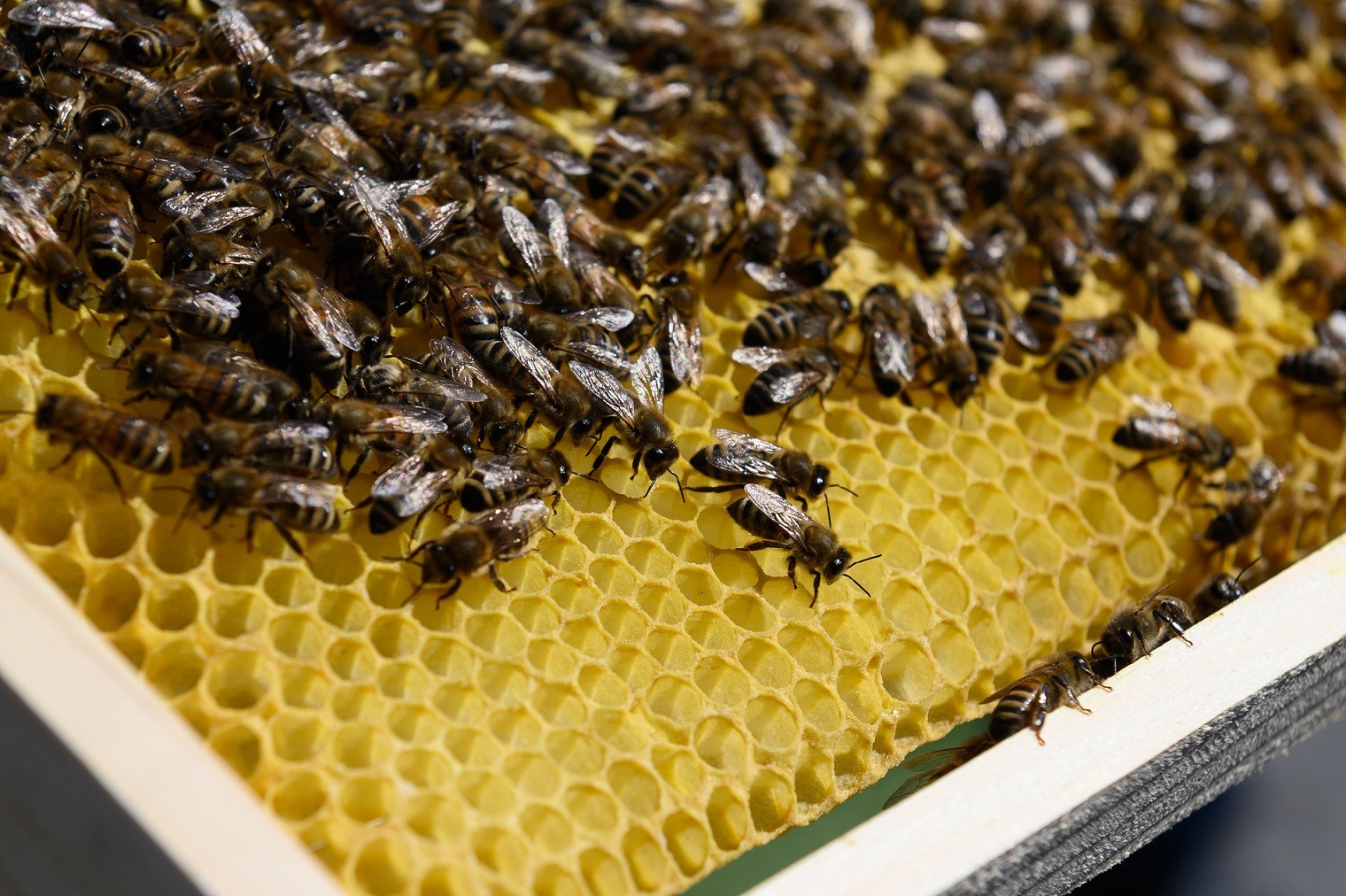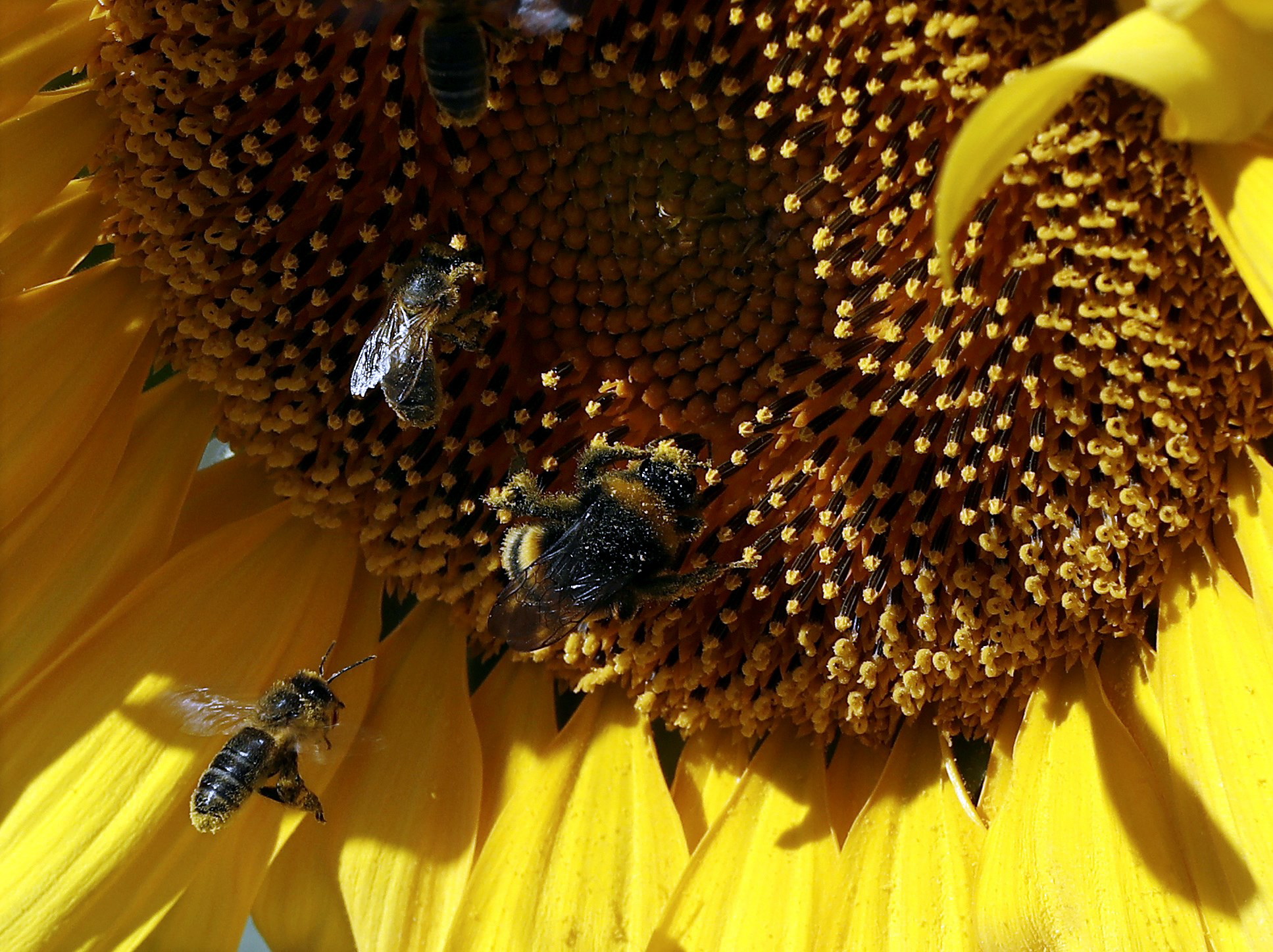Massionate bees: How to save them?

The beekeeper Tautvydas Vaičiūnas told why the bees die en masse and how to preserve them.
– Did the bees already overwinter?
– In fact, they have already awakened. Bee spring begins with the first full flying. Usually this date is about March 20-25. This year, spring came earlier because the weather was really favorable. The first days of flying were on March 6, 11 and 12. The bees then successfully fly and started their spring.
– This winter was quite warm. How did such conditions affect the overwintering of the bee?
– Warm winter has both advantages and disadvantages. On the one hand, bees needed less food because they burned less energy to heat their hives. On the other hand, such warm weather can degrade them – they earlier start growing with wigs, which means higher food intake. It’s like a two -axle sword: on the one hand, but on the other, it can be screwed into a process that is difficult to stop later and can cause other problems.
Photo by EPA-ELTA
– Why do bees die?
– The main two causes are disease and climate change. The biggest problem is Varroa ticks and various viruses. Another problem is climate change. Warm winters balance bees, consume more food and can die from starvation.
– You say that about 10,000 people were killed in this winter. Bee families. Did these reasons that led to this?
– In fact, those statistics are still being completed, as beekeepers can only assess the real situation after the first trip. But unfortunately, mortality figures are even higher – it is likely that there will be about 30,000. or even more. These are very serious numbers. By comparison, a reported report from the US has recently been recorded, with a record of a record of $ 1.1 million this year. families. The same problem is visible all over the world.
– How should the bees look after in winter to prevent them from damaging?
– Bees need to take care before winter. This is an important part of the beekeeper’s work. If you are not preparing for the winter on time, you just have to watch the process going, because in reality the bees can not help much. It all starts in the middle of summer – bees must be properly nourished and protected from boots mites. This happens in June -August. In September and October, we are already observing the results.
Full LNK Report – In Video:
– You say that not only beekeepers, but each of us can contribute to a better bee life. How to do it?
– There are two basic ways. The first is the global when we contribute to initiatives that promote the preservation of the bee population, the development of green cities, and lower use of pesticides in agriculture. The second way is to act directly in your environment. Those who have a plot can leave space for insects – not only bees but also for butterflies and other pollinators. It is important to plant wooden plants.
Another way is to become beekeepers yourself. Nowadays, more and more people are interested in it, and we and our colleagues even have the initiative « honey », where we help people start to start beekeeping. There is still a stereotype that only older people are engaged in beekeeping, but we want to break this myth because the importance of bee is clear to everyone. Economically, only about 20 percent. The benefits come from bee products, and the great benefits are the pollination they do. So if we love bees and want to help them, the best way is to take action and start beekeeping.
Photo by EPA-ELTA
– In cities, bees are increasingly kept on roofs or office buildings. How do you rate such initiatives? Is bees easy to survive in cities?
– I see this situation from two perspectives. First, beekeeping these days face challenges everywhere – both in cities and in the countryside. In the countryside, monocultural fields, pesticides, and fewer of these factors in cities are problematic. Lithuanian cities are quite green – we have a lot of vegetation, linden and maple alleys, various flower beds that give bees a great environment.
Second, beekeeping becomes closer to people in this way. Many people move to cities, so relations with village and nature are weakened. In cities, bees come closer to people, making it easier to show children and adults, what they are important and why we need to protect them.









